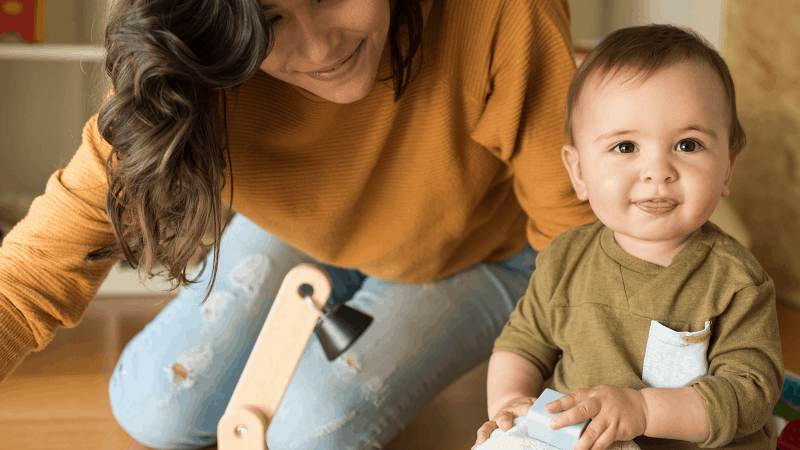NEAR@Home Toolkit: A Guided Process to Talk About Trauma and Resilience in Home Visiting
In the last three decades, scientific research has demonstrated how deeply adversity in childhood becomes embedded into biology, behavior, and risk, and how these can be passed on to future generations. This body of science — Neuroscience, Epigenetics, Adverse Childhood Experiences (ACE), and Resilience research, or NEAR — is one of the largest public health discoveries of our time.
Home visitors knowledgeable about the NEAR sciences and research are interested in bringing this information to families but worry about causing harm. The NEAR@Home toolkit addresses these concerns and provides strategies for engaging parents in discussing NEAR sciences and using the ACEs questionnaire in a safe, respectful and effective way for both home visitor and family.
Home visitors are uniquely positioned to help families mitigate the effects of past, present, and future adversity through supporting protective, responsive parenting and safe attachment relationships. The NEAR@Home process gives parents choice, offering information, assuring safety, being respectful, allowing time and space for reflection, and by always closing with hope and resilience.
The NEAR@Home toolkit was created, tested, and revised by home visitors, mental health providers, and other experts in the field of NEAR and home visiting in Alaska, Idaho, Oregon, and Washington. The NEAR@Home toolkit is designed as a training manual with guided processes to help you learn and practice language and strategies to safely and effectively talk about the trauma of ACEs. We emphasize safety and reflective support for the home visitor as a critical element in this process.
The NEAR @Home toolkit was developed as a self-study process and is being shared without cost because we believe that all home visitors deserve to have access to this guidance. Many home visitors discovered that while self-study of the NEAR@Home toolkit was useful, they preferred a supported learning experience and have informed the development of NEAR@Home Facilitated Learning. Learning how to be safe, respectful, and effective while talking about the NEAR sciences with parents is a complex process that requires and deserves time and support.
The NEAR@Home Facilitated Learning process is very different from most training programs. Thinking about, talking about childhood trauma stirs feelings in all of us, whether ACEs are part of our life story or not. Our learning process is guided by Facilitators who are relationship focused, trauma sensitive, and fluent in infant mental health concepts and processes. The Facilitators model self-regulation, co-regulation, spacious listening, and reflective processes to walk with home visitors and supervisors through learning how to do a NEAR home visit. Implementation Science guides the structure of the learning process from a mutual exploration of fit and feasibility to follow up reflective consultation to support home visitors as they integrate these new skills.
